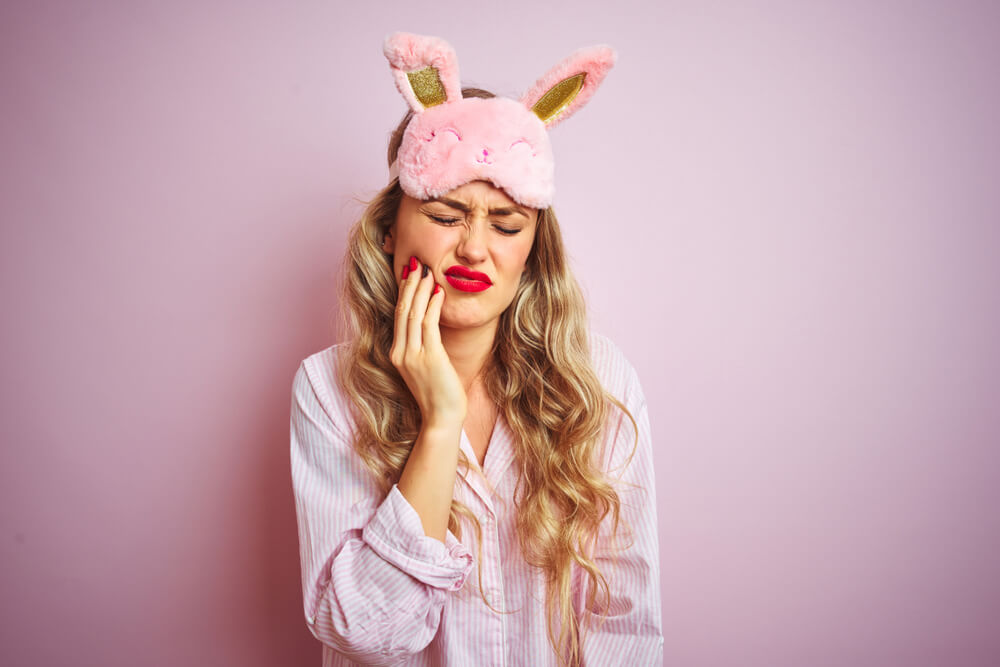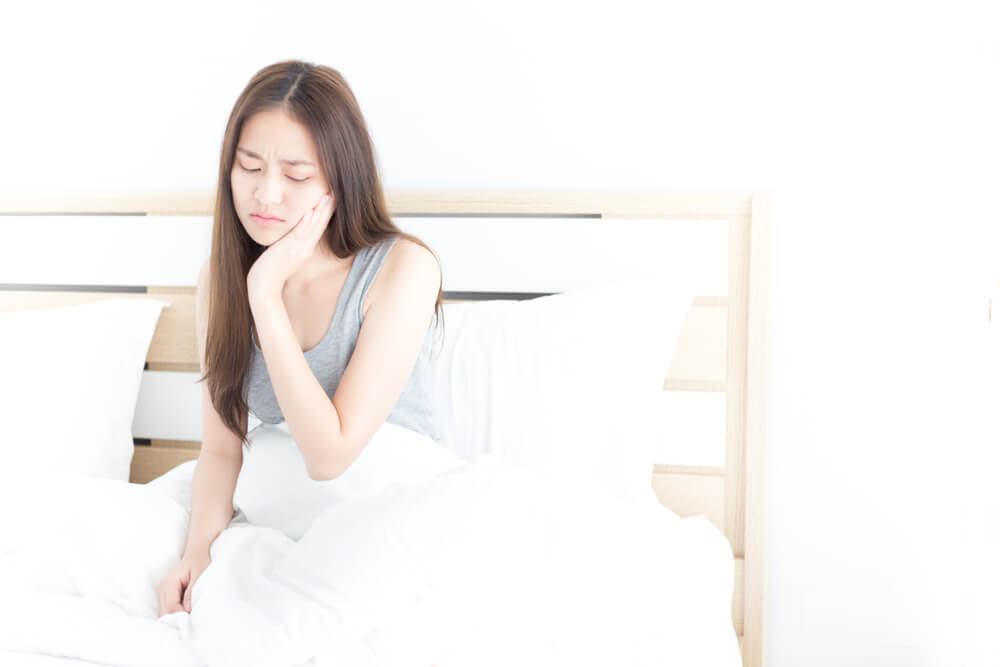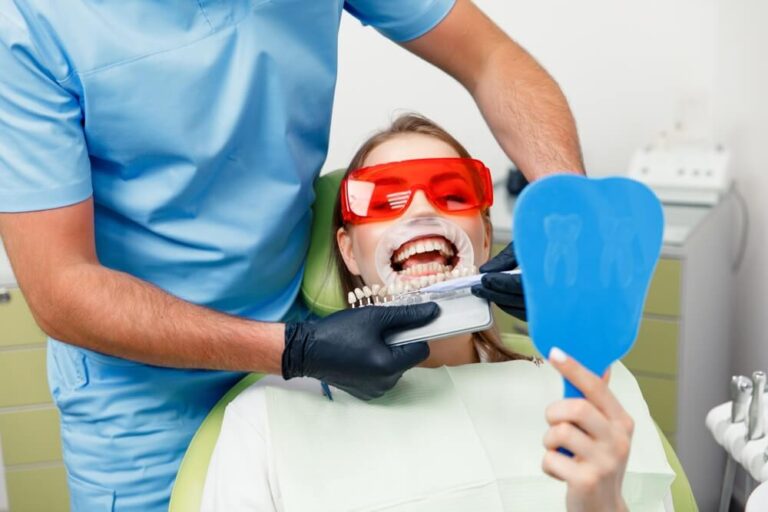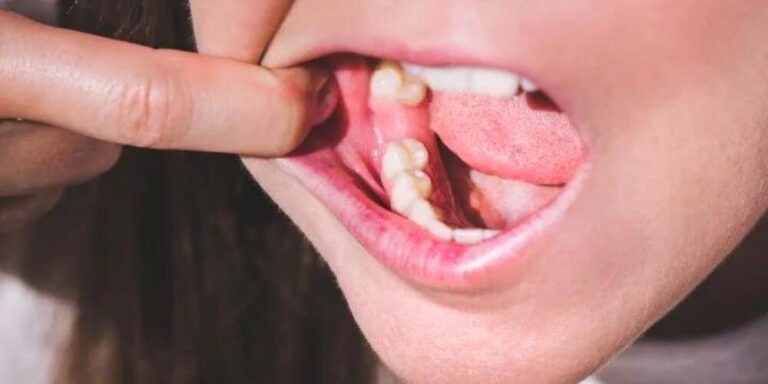Everyone wants good health to enjoy a beautiful life and eat everything that they love, but most people feel extreme tooth pain as a result that they can’t sleep at night. We will go over most of the possibilities as to why teeth become sensitive and painful at night or most of the time gums swell due to poor oral health. Now there are various ways of tooth pain due to lying down. In this article, we are completely discussing tooth pain and extreme tooth pain and can’t sleep at night. Their issues and treatment as well as things that caused everything you have learned in this article.
You can also learn DIY Remedi to Kill Pain Nerve in 3 seconds
Causes of Tooth Pain
1. Puppets (Inflammation of the Pulp Chamber)
Pulpitis or inflammation of the pulp chamber in the center of the tooth, so maybe you have hit your tooth pretty hard or tooth decay that’s about to reach the pulp chamber or something else is going on. How does your body respond if it tries to send inflammation to try and heal the tooth?
Or stop whatever is going on. But then what happens is this creates pressure in your tooth and oftentimes will make it sensitive to cold or other things. This pain or pressure in the tooth is called pulpitis. So what’s important to know is that for some people who have a pulpit when they lay down, this increases pressure on the head.
But it also further increases pressure on the tooth. So now not only do you have inflammation in your tooth, you have increased inflammation in your tooth. These people will feel this increased inflammation as a throbbing or aching in the tooth.
2. Types of Pulpitis
If you have pulpitis, there are two types, reversible and irreversible pulpitis. Reversible means the tooth will possibly heal itself and eventually go away. Irreversible pulpitis means the inflammation in the tooth will not eventually go away and eventually you will need a root canal to save the tooth, a vitality, or a cold test. A dentist will diagnose whether the tooth is reversible or irreversible.

3. Managing Reversible Pulpitis
Anytime you have reversible pipis, it can develop into irreversible pipis the tooth doesn’t eventually heal itself. We have a technique with patients so that reversible pulpitis doesn’t progress into irreversible pulpitis. Most of the time we then take over-the-counter ibuprofen three times a day for three days.
One thing we tell some patients to do to reduce the inflammation and help the tooth stay in that reversible pulpitis zone is that ibuprofen is the best way to get your tooth to calm down. But besides that, if you don’t want your tooth to hurt in the meantime, your best shot is to just prop your head up while you’re sleeping at night.
That way you won’t have that increased pressure and increased inflammation in your tobe. But now let’s move on to the next possible pathway of nighttime tooth pain. It’s a lot like pulpitis. If you don’t treat irreversible pulpitis, the tooth will eventually become infected and develop an abscess.
4. Abscess and Its Causes
Abscess is another cause of pain when lying down. What happens is that the tooth doesn’t have any blood supply.
To the center of the tooth anymore because it’s dyed and so you can’t send the appropriate things to heal any infection in the tooth. So infection takes over the center canal of the tooth. But what happens is that the infection is in the center of the tooth.
5. Symptoms of Abscess
It will start to spread outward and once the infection spreads outward, it starts eating away at the bone and other tissues around the tooth and it creates a pocket of infection called an abscess just like pulpitis. When lying down, the increased blood pressure to the head will also increase the inflammation of that pocket of infection and will normally manifest as throbbing in your teeth, gums, or jaw at nighttime. For some, it’s almost like you can feel a heartbeat in your tooth or your jaw.
6. Importance of Treatment
A dental abscess, just like irreversible pulpitis, requires a root canal or extraction to take care of the abscess. Antibiotics will only temporarily reduce the infection in the job because when a tooth dies once again, it loses its blood supply and it can’t reach the infection inside the tooth. Which again is the source of the infection. So once again with antibiotics, your pain may go away for a little bit. But it just comes back once again after you’re done with the antibiotics. Oh, and again, propping your head up in the meantime will help to reduce the pain at night when sleeping.
So, hopefully, you can get some rest before going on to probably the most common cause of pain when lying down. Everybody should learn my article on killing tooth pain nerves from their place. But if you learn my Daily Teeth routine articles, you will see how you can get stunning results, by cleaning your teeth each day to get things almost spotless.
7. Clenching and Grinding (Bruxism)
The mechanism of nighttime tooth pain is clenching and grinding, which causes inflammation in the ligaments that hold your teeth into place. You may not know this, but your tooth has little ligaments right around it that hold your tooth into place. When these ligaments become inflamed from increased pressure from clenching and grinding.
This can cause your teeth to ache and to throb—at night when lying down. Most people clench and grind their teeth at night when they sleep, but it can happen during the daytime too. Some people do it more than others and then some people will do it at certain points in their life more than at other times.
Most people clench their teeth at least a little bit at night and don’t even know they’re clenching and grinding at night when they’re doing it. Interestingly, even people who snore will temporarily clench their teeth at night, which is your body’s reaction to try and keep the jaw forward and open the airway. Once you enter into a deeper sleep, clenching it everything falls back and you start snoring again. What’s interesting is that clenching your teeth.
Tooth ligament inflammation can kind of be a vicious cycle. You see the act of clenching sometimes can temporarily make the pain in your ligaments feel better, but later this increases the inflammation and pain in the tooth ligaments, thus causing more pain and creating a vicious cycle of pain.
8. Symptoms of Clenching
Now, one of the ways we can tell tooth ligament pain, is they’ll come into my office and they’ll tell us that they have pain in their teeth. But a lot of times they just can’t locate where it’s at. They think it’s somewhere on their side and their bottom. While this can be other things, one of my first things to think about and to rule out is tooth ligament pain because it’s so common for people who clench their teeth and get inflammation in their ligaments to not be able to know where the pain is coming from.
But that being said, sometimes it can just be one or two teeth that are taking the brunt of 4ths when you’re clenching and grinding your teeth. So it’s not a 100 percent rule, but I’d say it’s like an 80 percent rule for people that are clenching their teeth that it’s hard to locate now. Another thing we look for when patients come in is that they’ll tell us that the pain normally starts to coincide with some nighttime or morning soreness routine, depending on how your body responds.
For example, someone might say I get the pain. Every night in the middle of the night or they say they get the pain 30 minutes after they wake up or so the thing that corresponds with this kind of pain is, a lot of people will say that that the pain comes and goes for a day or a week at a time and then goes away and maybe in another day or week or month it comes back for another day or week at a time. Once again, these can all be different things as well, but they’re very common Tooth Ligament Pain. If you have inflamed ligaments due to grinding and clenching.

9. Managing Clenching and Grinding
Most of the patients do have clenching and grinding issues. We start by having them just give it a little time and see if it goes away on its own. Ibuprofen will normally help with the inflammation in the meantime.
Then there are a few things to pinpoint that can be triggering the excessive amount of clenching and you should go into my video about clenching. A grind needs to know all of the things. The most common thing I see is people taking too many vitamins. The main culprits seem to be vitamin D, calcium, and metals like zinc and iron.
If these are not doctor prescribed. We have seen this work about half of the time for people taking vitamins that also have clenching pain. Half of the people that have both clenching pain and are simultaneously taking vitamins are about half of them. This relieves their problem now, even if they have been taking vistas for a long time and this is a recent issue. We still see it routinely being the cause and you’d be surprised at how many times this helps. Now we are not against vitamins, we take vitamins, even vitamin D.

But for some people even a little it’s just too much like vitamins. Medications are another common issue that can start excessive clenching. I would ask your doctor about your meds if you can’t find any other thing that’s causing you to clench. Sometimes there are alternatives that you can try. Another thing causing the clenching could be a bad sleeping position or even hard or memory foam pillows.
Sometimes when you sleep in an unfavorable position it will tire out and make sore muscles around your neck and your back. And then what will happen is your jaw will try to compensate for those tired muscles and that bad sleeping position and it too will become sore entirely. This can be especially true like I said for hard memory foam pillows that push your head too far forward.
But any sleeping position if it’s just not right for you could cause this, so we would try sleeping in a different position. Stress also causes clenching so reduce that however you need to do that in your life. Also, extreme workouts and diets can cause clenching.
Likely due to some sort of imbalance in the body of hormones.
10. Interventions from Dentists
If you tried all of those to get rid of your clenching, or if they just don’t apply to you and the pain persists, then there are a few interventions we as dentists can do. Most dentists can make night guards to evenly distribute the pressure of clenching on all of your teeth and onto the night guard instead of just spewing teeth that are causing ligament pain.
That way you can further narrow down and find the cause of your pain and hopefully find a remedy and see a dentist. Possibly that can provide you with an official diagnosis and treatment. All right, prop your head up at night. If you’re having that, don’t forget to prop your head up.
Why do teeth hurt more at night?
Toothaches come in all shapes and sizes, some are dull and ach, others are sharp and there are so many different reasons why your teeth might hurt. And we have written articles all about what to do if you have a toothache. Let’s talk about the main two reasons, your tooth hurts more when you’re lying down or sleeping, so whenever we lay down to sleep it can actually.
1. Increased Blood Pressure
Raise our blood pressure, you might think it would be the opposite, but increased blood pressure can push against the nerves and blood supply to your teeth, causing it to flare up whenever you go to bed. It’s similar to sinuses hurting more at night. You know when everything rushes to your head, more congestion and more pressure when you lay down. So having said that if the teeth that hurt are on the top of your mouth.
2. Rule Out Sinus Issues
You’ll want to rule out any sinus infections, congestion or allergies being to blame. Oftentimes, once someone takes a decongestant and that tooth issue is solved, then they know, but if it’s not due to your sinuses.
3. Tooth Infection
There are two main reasons why tooth pain is worse when you lie down to sleep. One reason is that you might have a tooth infection if it’s one specific tooth and you can tell which tooth hurts like some of the red flags are that it hurts to bite on it. It is a pain with pressure.
Heat sensitivity is not usually from cold sensitivity. It could also be sensitive to cold in addition to heat, but heat is usually the red flag and of course, if it’s throbbing more at night.
4. Recommendations Before Dental Appointment
All of these things can be evidence to tell us that the tooth is headed into root canal territory, meaning the nerve of the tooth is infected with decay, it is dying or it has died now in any case, but in this case specifically, it is super important to schedule an appointment with your dentist ASAP so they can evaluate whether or not your tooth is infected.
Maybe you’ll need an antibiotic for things like that, and often when you call, they will give you some tips and recommendations to get you through the night before you can see your dentist the next day if they can’t get you in the same day. Some of the things to get you by are things like taking over-the-counter pain medication.
5. Teeth Grinding (Bruxism)
It would usually be an anti-inflammatory NSA like ibuprofen propping your head up with a couple of extra pillows or sleeping in a recliner to keep your head elevated and making a cold compress to place against the side of your mouth that hurts next. Another reason your teeth might hurt more at night is because of teeth grinding.
6. Difficulty Locating Pain
Teeth grinding or bruxism chronic teeth clenching and grinding is usually a subconscious habit that is brought on by issues like stress anxiety. TMJ disorder, and even sleep apnea. The constant clenching of your jaw joint and teeth will gradually strain the tiny ligaments that hold your tooth roots in place, making them sore to the point where it feels like a toothache. Now this is usually when you can’t pinpoint exactly which tooth hurts.
7. Why Dental Consultation is important
Sometimes you can if you’ve been clenching or grinding right on a specific tooth, but often it can feel like a whole area or whole side of your jaw hurts again. The best advice is to call your dentist to confirm the pain is from grinding your teeth because if you grind too much, there is a chance that you can cause chipping cracking, or fracturing of your teeth without even knowing it.
Until it gets bad. So for anyone who clinches or grinds their teeth at night, it’s always recommended to visit your dentist for them to examine all of your teeth and make sure there’s no damage from grinding. After that, they will often recommend a night guard to wear at night to protect your teeth. I hope it kind of gives you an idea of the two main causes that are known to cause tooth pain when you lie down to sleep at night.
How to treat a toothache at home
When you have a toothache, it can be difficult to think about anything else. The constant throbbing pain can make it difficult to eat, sleep, or even function at work. While there are many over-the-counter treatments available, there are also some home remedies that can help relieve the pain.
Home remedies for toothaches relief
Saltwater Rinse
One of the simplest and most effective ways to treat a toothache is to rinse your mouth with salt water. The saltwater can help to reduce inflammation and pain. To do a salt water rinse, mix one teaspoon of salt into a cup of warm water, rinse your mouth with the solution for 30 seconds, and then spit it out.
Cold Compress
Applying a cold compress to your cheek can help to numb the pain and reduce inflammation. To do this, wrap a bag of ice in a towel hold it against your cheek for ten minutes and repeat as necessary.
Peppermint tea
Peppermint tea can help to soothe toothache and reduce inflammation. The menthol in peppermint can also help to numb the pain and it is antibacterial. To make peppermint tea, put one teaspoon of dried peppermint leaves in a cup of boiling water for ten minutes. Then you can wash your mouth with it or drink it slowly if you want four hydrogen peroxide. Hydrogen peroxide can help kill bacteria and reduce inflammation. To use it, mix a three percent hydrogen peroxide solution with water and then use the mixture as a mouthwash.
Cloves
Cloves have long been used to treat toothaches due to their pain-relieving antibacterial properties. To use them, place a whole clove in your mouth and bite down gently. Alternatively, you can make a paste by mixing a few drops of clove oil with a teaspoon of sunflower oil and applying the paste to the affected area.
Garlic
Garlic contains Allison, which has antibacterial and pain-relieving properties that make it effective for treating toothaches. To use it, mince a clove of garlic mix it with a little bit of salt, and then apply the mixture to the affected area. So these home remedies for toothaches can help you get relief from your pain fast. However, if your toothache persists for more than a few days, or if you have other symptoms such as a fever, you should see a dentist as soon as possible.
Conclusion
In summary, We briefly discussed tooth pain, and extreme pain that caused cant sleep at night. On the other hand, we discussed their problems and how to tackle them. In the third part, we discussed how to stop pain in your home or without visiting any dentists. So we provide this information on behalf of our expert dentists who are professional and experienced.







